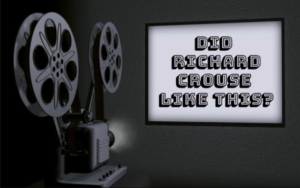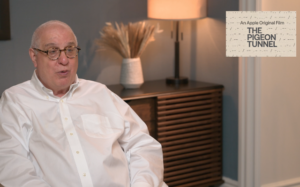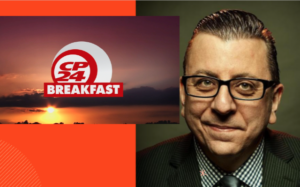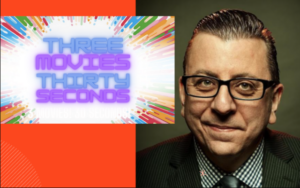IHEARTRADIO: AUTHOR SALAH BACHIR + ERROL MORRIS + R.H. THOMSON
 On the Saturday December 9, 2023 edition of the Richard Crouse Show we meet Salah Bachir, author of a new memoir, “First to the Leave the Party: My Life with Ordinary People Who Happen to Be Famous,” available now wherever fine books are sold.
On the Saturday December 9, 2023 edition of the Richard Crouse Show we meet Salah Bachir, author of a new memoir, “First to the Leave the Party: My Life with Ordinary People Who Happen to Be Famous,” available now wherever fine books are sold.
Salah is a Canadian business executive, entrepreneur, publisher, art collector, fundraiser, and philanthropist, who has raised millions of dollars for charity… and says the only autograph worth having is on a cheque. He is a pioneer in consumer video, the founding president and chair of Famous Players Media, and later the president of Cineplex Media and creator of the Scene program, which I know you’ve all used… It is a storied career, which he covers in the book in 54 short chapters about the people he has met and befriended over the years… chapters like: Elizabeth Taylor Tries on My Pearls; Eartha Kitt is Not For Sale; Wooing Gregory Peck; Harvey Milk Sets Me Free and Keith Haring Does New York.
Then we meet Academy Award-winning filmmaker Errol Morris. “The Pigeon Tunnel,” his latest film, now streaming on Apple TV+, is a look at the extraordinary life of David Cornwell a.k.a. prolific author John le Carré. Through a retelling of his life, Cornwell examines the very essence of truth, and how memory and manipulation play a part in how we shape our world and our perceptions. It is a greart movie and Morris is an interesting man, you’ll want to stick around for that one…
We’ll also meet actor and author R.H. Thomson. You know him from his film and television work as Matthew Cuthbert in Anne With An E, in the movie Chloe directed by Atom Egoyan and as Marshall McLuhan in The Message by Jason Sherman. Today we’ll talk about his new book, In “By the Ghost Light,” he looks at his family history and relatives who fought in World War I and World War II, as a starting point to examine war and its aftermath.
Listen to the whole thing HERE!
Here’s some info on The Richard Crouse Show!
Each week on the nationally syndicated Richard Crouse Show, Canada’s most recognized movie critic brings together some of the most interesting and opinionated people from the movies, television and music to put a fresh spin on news from the world of lifestyle and pop-culture. Tune into this show to hear in-depth interviews with actors and directors, to find out what’s going on behind the scenes of your favourite shows and movies and get a new take on current trends. Recent guests include Chris Pratt, Elvis Costello, Baz Luhrmann, Martin Freeman, David Cronenberg, Mayim Bialik, The Kids in the Hall and many more!
Listen to the show live here:
C-FAX 1070 in Victoria
SAT 5:00 PM to 6:00 PM
SUN 10:00 AM to 11:00 AM
CJAD in Montreal
SAT 8 PM to 9:00 PM
CFRA in Ottawa
SAT 8 PM to 9:00 PM
NEWSTALK 610 CKTB in St. Catharines
Sat 8:00 PM to 9:00 PM
NEWSTALK 1010 in Toronto
SAT 8 PM to 9:00 PM
NEWSTALK 1290 CJBK
SAT 8 PM to 9:00 PM
AM 1150 in Kelowna
SAT 11 PM to Midnight
BNN BLOOMBERG RADIO 1410
SAT 8 PM to 9:00 PM
Click HERE to catch up on shows you might have missed!








